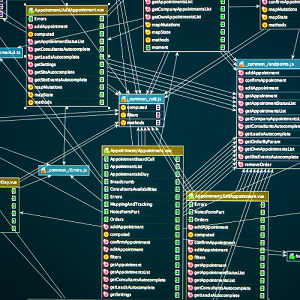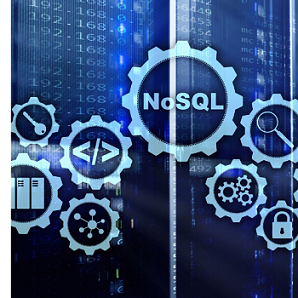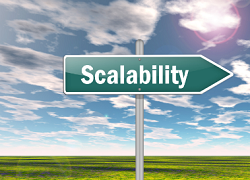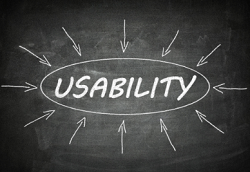
RDBMS vs NoSQL: The relationship between data and User Interfaces (UI) always depends on a platform or system for managing databases in order to save data and provide it for use when and as needed. Programmers are well aware of this. At a certain point in building any software project, you will need to store the data for subsequent use, whether User data such as name, password, email, etc., or other data depending on the project.
Nowadays we have RDBMS (Relational Database Management System) and the new trending DB management System: NoSQL.
What is RDBMS?

In order to better explain NoSQL, we must first define the RDBMS type: It is a relational database management system. This means you store the data in the database in the form of tables. So that each table has a specific name. A database can contain a large number of tables. The table consists of internal elements also called Columns, and each column has a name and type of entry that accepts a value, i.e., for example, the name column accepts the value of type Varchar (50), which means that the column accepts input of type text with maximum 50 characters. Tables are linked in databases as needed, as there is a set of linking properties such as (One to One, One to Many, Many to Many).
In short, the relational system consists of tables with specific pre-defined value types of columns, and Foreign Keys link between them.
What is NoSQL?

NoSQL, which is an abbreviation for the term Not Only SQL, comes to change the way of data management. NoSQL organizes data using a structured approach. The parent node is the root element. It is present in the header of the structure. Then, the child’s elements come below it. Each element has its own key in order to define it, such as id. And each key has its own value that carries any type without prior specification as in the RDBMS.
So that the final result becomes in the form of a Structured Tree. You can extract its data in JSON format. In NoSQL, you do not need to create a database. Rather we need to create a Directory Root that acts as the database. Furthermore, you do not need to define the tables or to specify the type of data that can be entered into Each key. At first glance, You may think that this approach is messy, but in fact, it is a strong approach to store data.
Who should use NoSQL and where?
The concept of relational databases is not appropriate at all when databases are dealt with massively especially in the field of Big Data: where thousands of unspecified and specific information are stored every second like images and text. Also, the need of extracting any type of data (bulk data) and then doing the filtering process later. Thus, so many companies decided that the relational system is not suitable. The relational system is mainly limited in the type of data stored. based on that, You had to use a new data storage system and NoSQL was the solution. Today, all major companies in the world, especially the leaders in the field of Big Data use NoSQL.
NoSQL vs RDBMS
You have to first realize that RDBMS and NoSQL each have their uses. Each one plays a role in its own domain. But let’s talk a little bit about the most important differences.
Scalability

let’s start with Scalability. NoSQL has a greater and better ability to store any type of files, regardless of whether images, texts, links, numbers. While the RDBMS is confined to a dedicated data type that cannot be bypassed. You must also specify the type of data that will be storing them. In case the type does not match the entered values, an error will occur. Unlike NoSQL where you can save anything without pre-defining its type, but with specifying the key to access it.
Usability

Both are almost close in terms of usability. Small, medium or large companies are using NoSQL and RDBMS in a range of services such as websites, applications, and desktop programs. But NoSQL and its capabilities allow us to use it in deeper domains such as the Internet of Things (IoT) and Social Media to rely on Big Data. RDBMS relies on queries or SQL queries in order to manipulate data, while NoSQL does not rely at all on SQL to deal with queries or data.
Support

Although NoSQL is powerful, it is still not supported by many database management platforms, unlike RDBMS which is supported almost by many Web Servers and Database Management platforms. The most important platform that supports NoSQL currently is MongoDB, and perhaps it is the most famous as well.
Feel free to leave a comment or to Contact Me for an open discussion!

